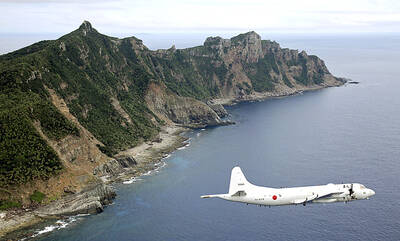Travel agents are barred from organizing tours to Hong Kong and Macau until April 30, given the COVID-19 outbreak in the two territories and because airlines have reduced flights to both, the Tourism Bureau said yesterday.
The ban also applies to tours to a third country if it involves transiting in either territory, the bureau said.
The bureau on Feb. 6 announced that all tours to Hong Kong and Macau would be banned until this Saturday, except for tour groups transiting in the territories.
The Central Epidemic Command Center on Monday last week raised Hong Kong and Macau in the nation’s travel advisory system from a Level 2 alert to a Level 3, the highest level, after Hong Kong declared community outbreaks and cluster infections of COVID-19.
Following that announcement, the bureau extended the ban on group tours to the two territories until March 31 and included those transiting through the territories.
Given the continuing outbreak, if travelers want to cancel planned trips, the terms of the Fixed Contracts for Overseas Tours state that either the travel agent or travelers might cancel tours to Level-3 areas without being subject to liability for compensation, as the contract cannot be completely fulfilled due to force majeure, or causes not attributable to either party, the bureau said yesterday.
“Travel agents who had arranged for travelers to transit through Hong Kong or Macau before reaching their final destinations could switch to other transit airports after securing the consent of travelers. If the travelers do not agree to the agreement, they could still be refunded under the terms of the Fixed Contracts for Overseas Tours,” the bureau said.
More than 70 percent of flights across the Taiwan Strait and on the Taiwan-Hong Kong routes and Taiwan-Macau routes were canceled between Monday last week and Sunday, the Civil Aeronautics Administration said.
Passenger traffic during that period dropped by more than 80 percent from the weekly average for December last year due to flight cancelations, the agency said.
Additional reporting by staff writer and CNA

MISINFORMATION: The generated content tends to adopt China’s official stance, such as ‘Taiwan is currently governed by the Chinese central government,’ the NSB said Five China-developed artificial intelligence (AI) language models exhibit cybersecurity risks and content biases, an inspection conducted by the National Security Bureau (NSB) showed. The five AI tools are: DeepSeek, Doubao (豆包), Yiyan (文心一言), Tongyi (通義千問) and Yuanbao (騰訊元寶), the bureau said, advising people to remain vigilant to protect personal data privacy and corporate business secrets. The NSB said it, in accordance with the National Intelligence Services Act (國家情報工作法), has reviewed international cybersecurity reports and intelligence, and coordinated with the Ministry of Justice Investigation Bureau and the National Police Agency’s Criminal Investigation Bureau to conduct an inspection of China-made AI language

LIMITS: While China increases military pressure on Taiwan and expands its use of cognitive warfare, it is unwilling to target tech supply chains, the report said US and Taiwan military officials have warned that the Chinese People’s Liberation Army (PLA) could implement a blockade within “a matter of hours” and need only “minimal conversion time” prior to an attack on Taiwan, a report released on Tuesday by the US Senate’s China Economic and Security Review Commission said. “While there is no indication that China is planning an imminent attack, the United States and its allies and partners can no longer assume that a Taiwan contingency is a distant possibility for which they would have ample time to prepare,” it said. The commission made the comments in its annual

‘TROUBLEMAKER’: Most countries believe that it is China — rather than Taiwan — that is undermining regional peace and stability with its coercive tactics, the president said China should restrain itself and refrain from being a troublemaker that sabotages peace and stability in the Indo-Pacific region, President William Lai (賴清德) said yesterday. Lai made the remarks after China Coast Guard vessels sailed into disputed waters off the Senkaku Islands — known as the Diaoyutai Islands (釣魚台) in Taiwan — following a remark Japanese Prime Minister Sanae Takaichi made regarding Taiwan. Takaichi during a parliamentary session on Nov. 7 said that a “Taiwan contingency” involving a Chinese naval blockade could qualify as a “survival-threatening situation” for Japan, and trigger Tokyo’s deployment of its military for defense. Asked about the escalating tensions

DISPUTE: A Chinese official prompted a formal protest from Tokyo by saying that ‘the dirty head that sticks itself out must be cut off,’ after Takaichi’s Taiwan remarks Four armed China Coast Guard vessels yesterday morning sailed through disputed waters controlled by Japan, amid a diplomatic spat following Japanese Prime Minister Sanae Takaichi’s comments on Taiwan. The four ships sailed around the Senkaku Islands — known as the Diaoyutai Islands (釣魚台) to Taiwan, and which Taiwan and China also claim — on Saturday before entering Japanese waters yesterday and left, the Japan Coast Guard said. The China Coast Guard said in a statement that it carried out a “rights enforcement patrol” through the waters and that it was a lawful operation. As of the end of last month,